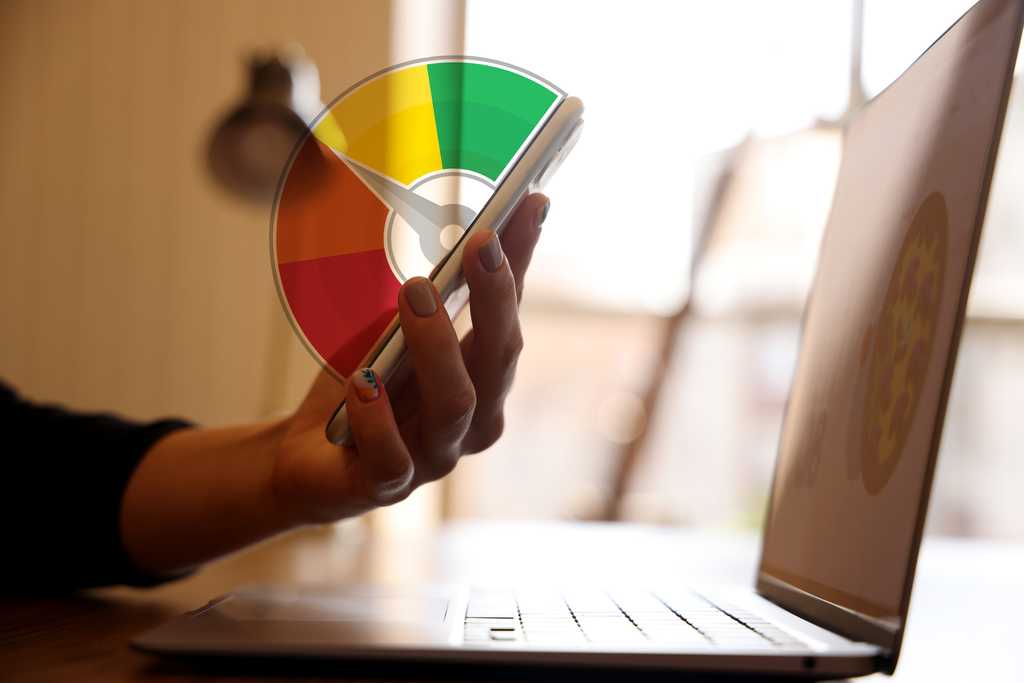No one wants to see a dip in their credit score, but from time to time things happen. You may accidentally miss a payment or overextend yourself and max out a credit card. Luckily, your credit score is flexible and there are several things you can do to fix your credit score and improve your credit habits.
What is my credit score, and how is it calculated?
Your credit score is a three-digit number used by lenders to determine how likely you are to repay your loans. The lower your score, the riskier you appear. The majority of lenders use the FICO score when determining a borrower’s creditworthiness. Your FICO score can range from 300 to 850.
- <580 Poor
- 580 - 669 Fair
- 670 - 739 Good
- 740 - 799 Very Good
- 800+ Exceptional
Understanding how your credit score is calculated can be helpful when it comes to trying to fix it. There are five categories used to determine your FICO credit score. These include:
- Payment history (35%)
- Credit utilization (30%)
- Length of credit history (15%)
- Credit mix (10%)
- New credit (10%)
Those who pay their bills on time, don’t overextend their credit limits, have a long history of credit, a good mix of credit (a mix of installment and revolving credit), and don’t frequently apply for new credit are well-positioned to have a higher score.
Tips to help improve your credit score
If your credit score is not where you want it to be there are several strategies you can use to fix your score, including:
1. Check your credit score
The first step to improving your credit score is knowing your score. Your credit score is a number that provides lenders with a quick overview of your creditworthiness. A high score signals that you are likely to repay your debts and often comes with better terms (lower interest rate). A low score signals a higher risk to lenders. Those who appear riskier will usually end up with a higher interest rate if they are extended credit. Knowing your credit score gives you a better idea of where you sit and if you need to make any changes.
2. Review your credit report
Your credit report provides a detailed summary of your financial history. It includes a listing of the type of accounts you have open, your payment history, outstanding balances, and any applications for new credit. It’s used by lenders to decide if they should offer you credit and, if so, at what interest rate. It’s important to review your credit report so you have a good idea of how you appear to lenders.
3. Check for errors on your credit report
Checking your credit report for errors regularly (at least once per year) helps to ensure the information is accurate and complete. If you notice an error on your report, contact the credit bureau and your lender. Any errors on your report that are not quickly identified and reported can hurt your credit score. Checking your credit report is also a good way to catch identity theft. If you notice any unexpected new credit cards or credit card purchases, follow up and investigate.
8. Pay your bills on time
Your payment history is the most important factor for your credit score so you want to avoid missing a payment. However, if you have missed a payment in the past, don’t stress. You can improve your payment history by ensuring you make your minimum payments on time moving forward.
If possible, it’s best to pay off your credit cards in full each month. If you are struggling to make your payments, contact the lenders as soon as possible to inform them and to try and work something out. To prevent missing payments in the future consider automating your bills through your credit card or loan provider. You can have payments directly debited from your bank account so you don’t have to remember any payment deadlines.
4. Pay late or past-due accounts first
If you have multiple payments and you’re trying to decide which ones to make first, focus on any late or past-due accounts first. A missed payment is not reported to a credit bureau until it is 30 days past due. As long as you make your payments within 30 days your credit won’t take a hit, but you will likely have to pay a late fee. If you are unable to make a payment within 30 days, your credit score will be affected and the late fee will stay on your credit card for seven years. The longer it takes for you to make a payment, the more damage you will do. The more missed payments you have, the more damage it will do.
5. Reduce your credit utilization ratio
Your credit utilization ratio is a measure of how much credit you owe versus how much credit you have available to you. Your credit utilization is another factor used to calculate your credit score. You should aim to keep your credit utilization ratio under 30%.
As an example, if you have $5,000 in credit available to you and you’re using $4,500, you have a credit utilization ratio of 90% (4,500 divided by 5,000 = .90). A high credit utilization ratio can damage your credit score because it indicates to lenders you are overextending yourself. However, lowering your credit utilization can help to improve your credit score. If you have $5,000 in available credit, you should aim to use $1,500 or less (1,500 divided by $5,000 = .30).
One way to reduce your credit utilization ratio is to make frequent payments. Rather than waiting until the end of the month to make one large payment, make several small payments throughout the month. This prevents your utilization ratio from getting too high at any one time.
Alternatively, you can ask your credit card company to increase your credit limit. This will not be a useful strategy for everyone. If you have a hard time controlling your spending, increasing your credit limit can create more problems. However, if you can keep your balances low, raising your credit limit can help to increase your credit utilization.
For instance, if you currently have $5,000 in available credit and you are using $2,000, your utilization ratio is at 40%. If you can increase your credit limit to $8,000 in available credit and you keep your balance at $2,000, your credit utilization will be 25%.
6. Be careful with new credit
Applying for multiple credit sources in a short amount of time can negatively impact your credit. Each time a hard credit inquiry is conducted (when you apply for a credit card or mortgage) it will appear on your credit report. If you have too many credit checks in a condensed period of time, it can reduce your credit score in the short term. This is especially true for people with a short credit history.
To prevent this from happening, limit the number of times you apply for credit. If you want to get multiple quotes from different lenders, try to do this within two weeks. This way your inquiries will be lumped together and treated as a single inquiry. Bottom line, only apply for credit when you really need it.
How long does it take to fix credit?
There is no magic number when it comes to how long it will take to fix credit. The length of time will depend on your specific credit history, if you have negative information like several missed payments, the amount of debt you have to repay, and how long you’ve been building your credit.
As a rule of thumb, those with a lower initial credit score can often see an improvement faster than those with a higher initial credit score. Adding a missed payment to a pattern of missed payments makes less of an impact than adding a missed payment to a clean credit report.
While you shouldn’t expect to fix your credit score in a few days, newer credit users might start to see an improvement within a month with responsible credit use. Again, it depends on your particular situation. If you’ve experienced a consumer proposal (an offer to pay creditors a percentage of what you owe or extend the time you have to pay off the debts) or bankruptcy, it can take years to repair your credit score.
What is credit repair?
Credit repair is provided by third party credit repair companies or organizations that offer to help people fix their credit in exchange for payment. For instance, a credit repair company will contact your creditors and try to get information removed from your credit report for a fee. However, unless there is inaccurate information on your credit report, there’s not a lot a credit repair company can do for you.
In 1996, the Credit Repair Organizations Act (CROA) was put into place. Its purpose is to protect consumers by regulating credit repair service companies. It helps to prevent these companies from spreading any untrue or misleading information about their services. It also bans credit repair companies from demanding upfront payment for their services and requires them to inform their customers that they can dispute any inaccuracies on their credit report themselves, for free.
Are you ready to fix your credit score?
If you are trying to fix your credit score, you can use the strategies in this article to help you rebuild. However, if you are continuously missing your payments or, you’re always maxing out your credit limit, it’s important you ask yourself why. Is there an underlying issue causing you to miss payments or spend outside of your means? Getting to the root of any spending issues will allow you to avoid making the same mistakes in the future.

